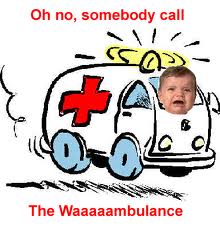Maternal vs Paternal Function: Is There a Difference?
Over the long holiday weekend, we drove cross-country to Colorado where we re-locate for the summer. Although the drive can be grueling (about 26 hours over two days) and it sometimes seems as if Kansas will never come to an end, I enjoy certain aspects of this annual trip. In particular, I relish the wealth of time for thinking. We drive in shifts, but even when I'm behind the wheel, it doesn't take much concentration to keep the car on a straight line across the plains. While on the road, I mapped out virtually the entire sequence of events in my next fairy tale novella, Snow White at the Dwarf Colony. During those long quiet hours (you can only make so much conversation when you're constantly together), I reflected on a great many other things as well, including maternal vs paternal function, and differences between my work as a psychotherapist when I first began versus the nature of my practice today.
Continue "Maternal vs Paternal Function: Is There a Difference?"

